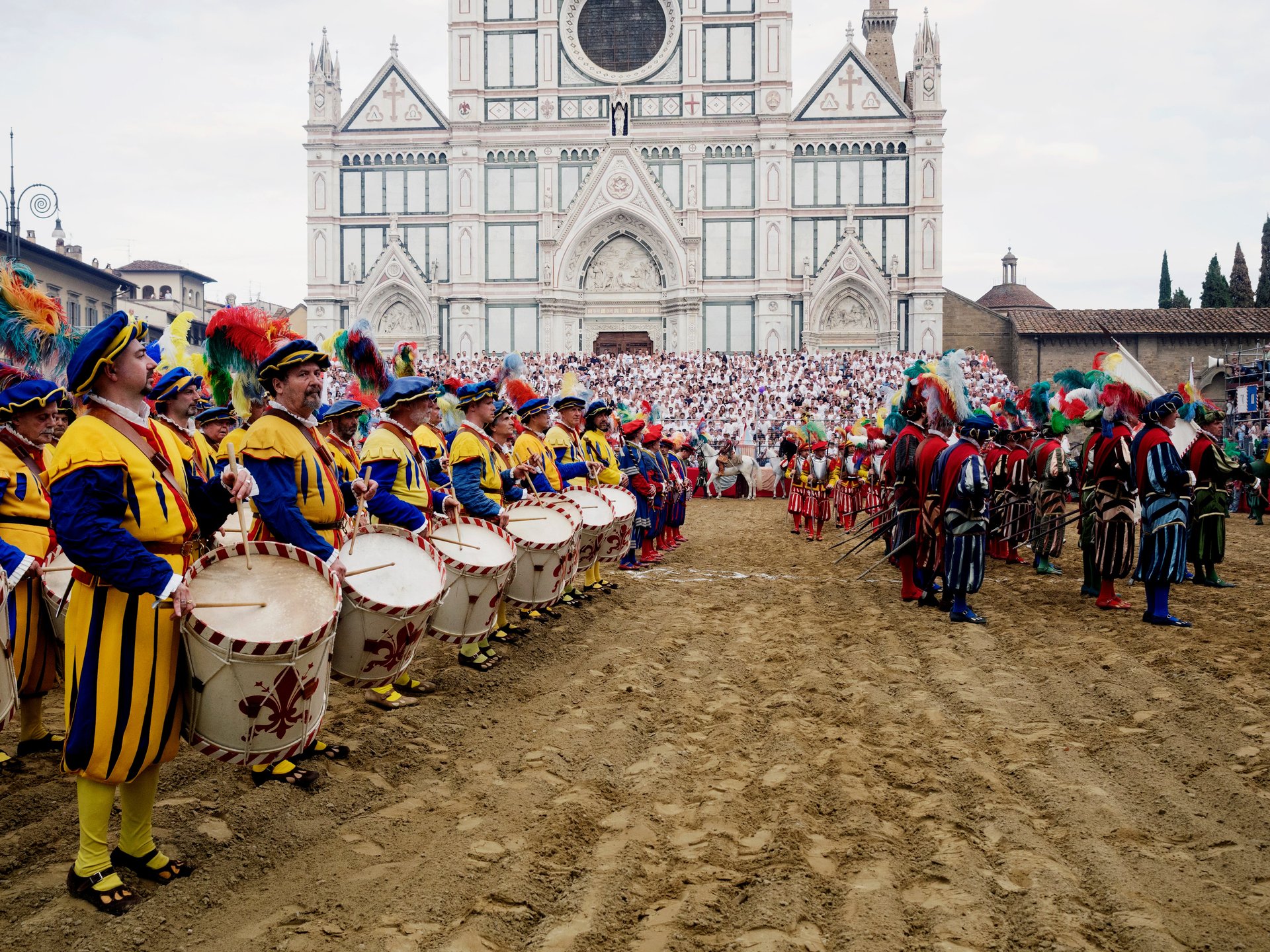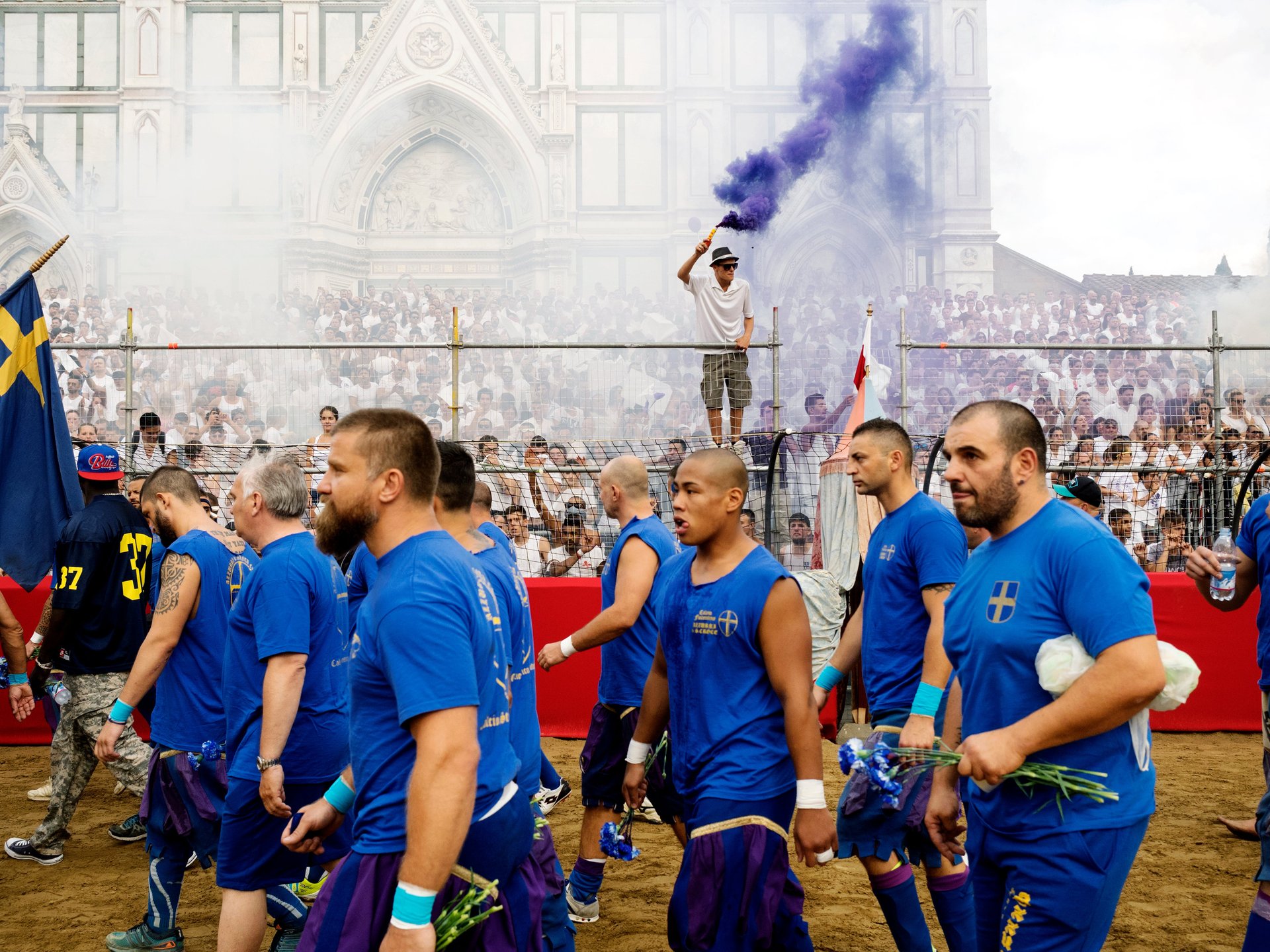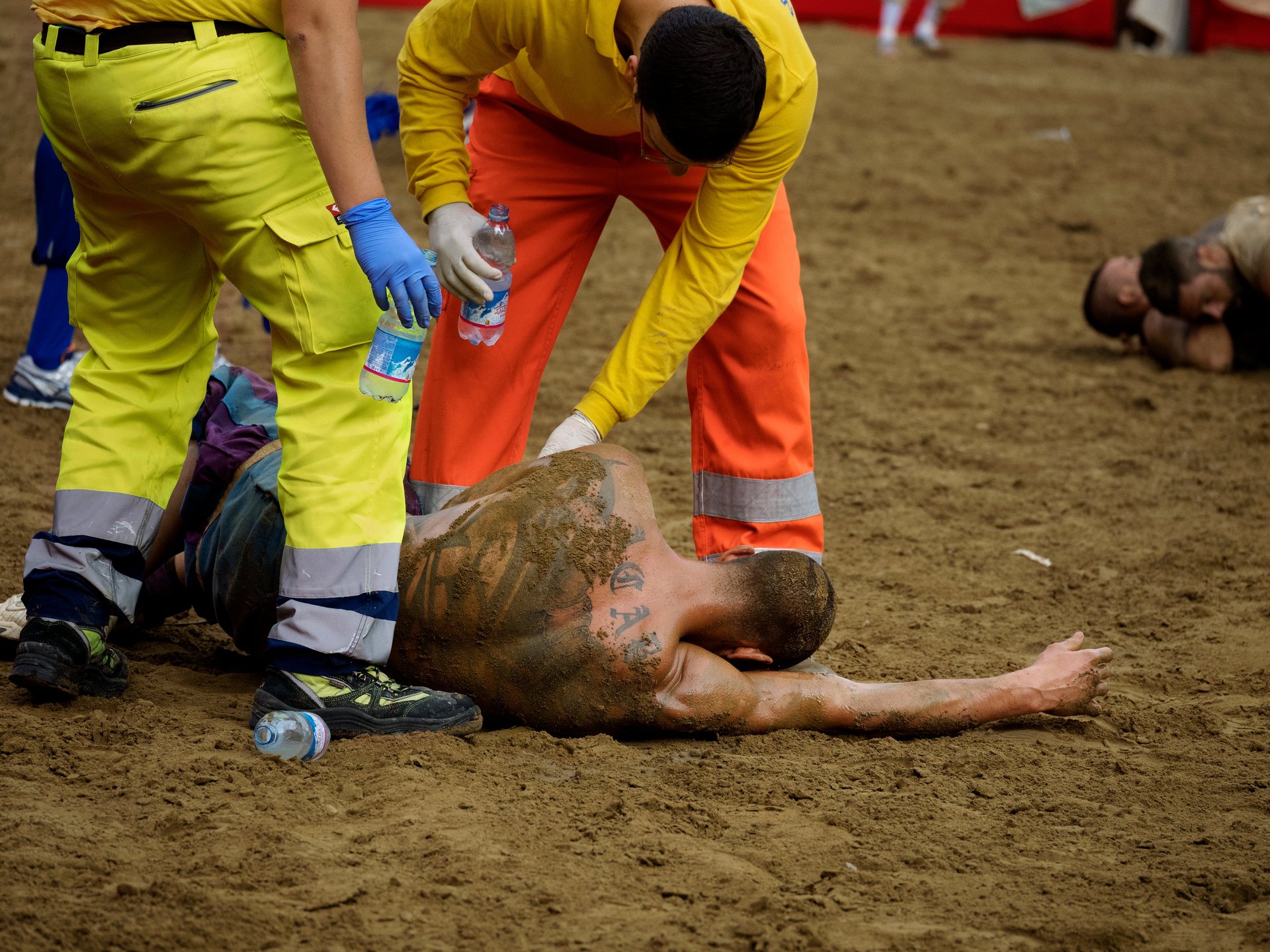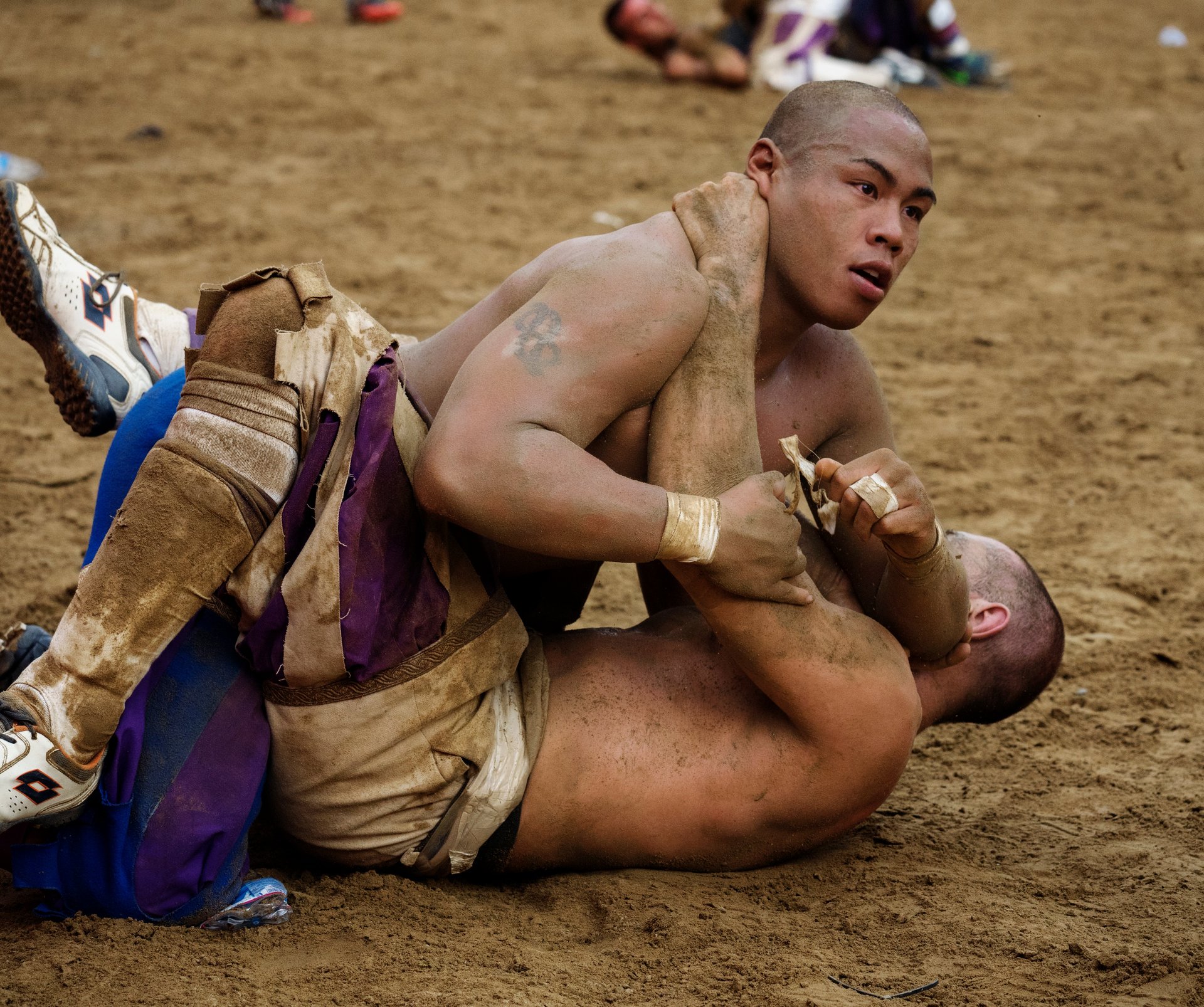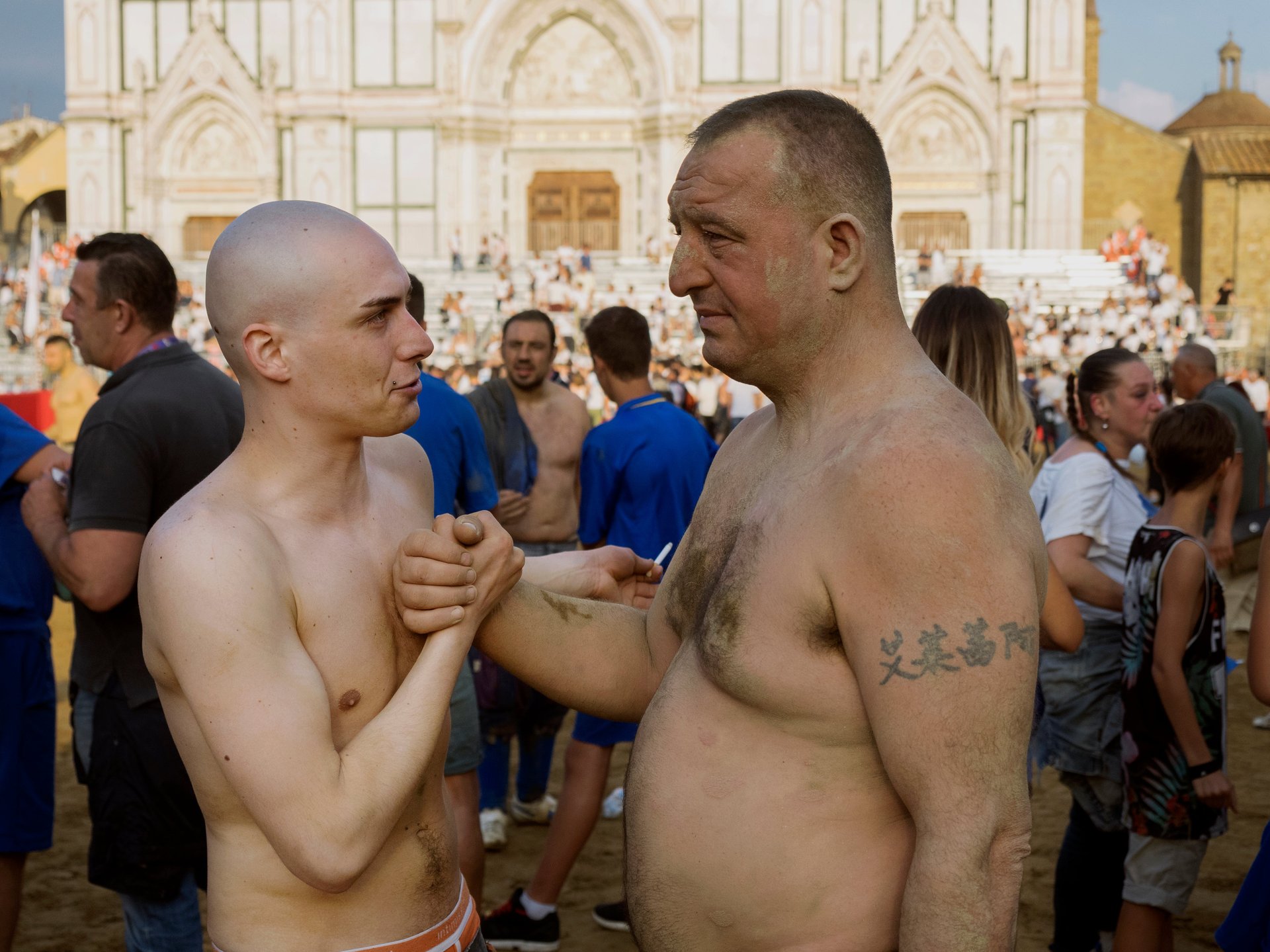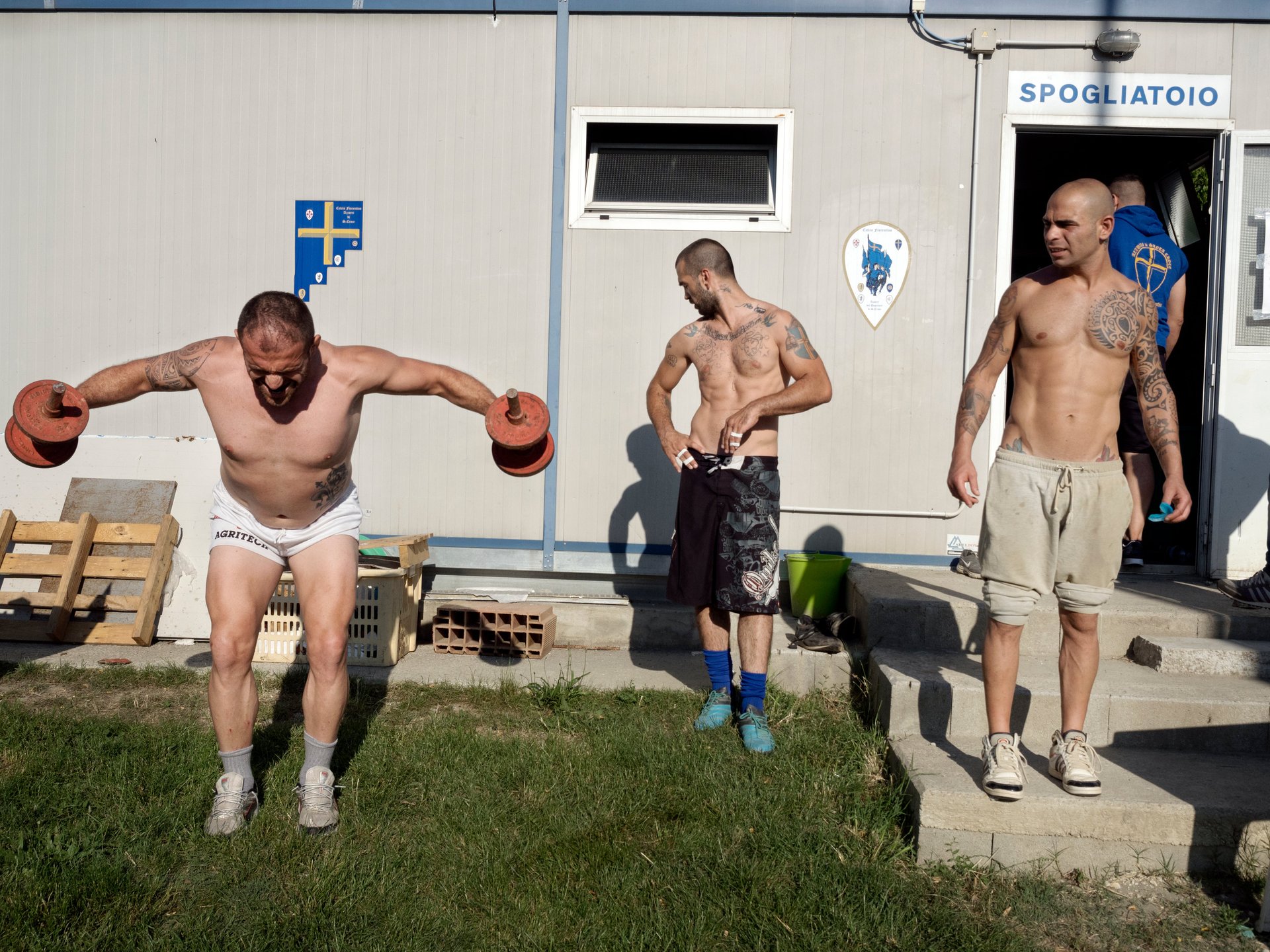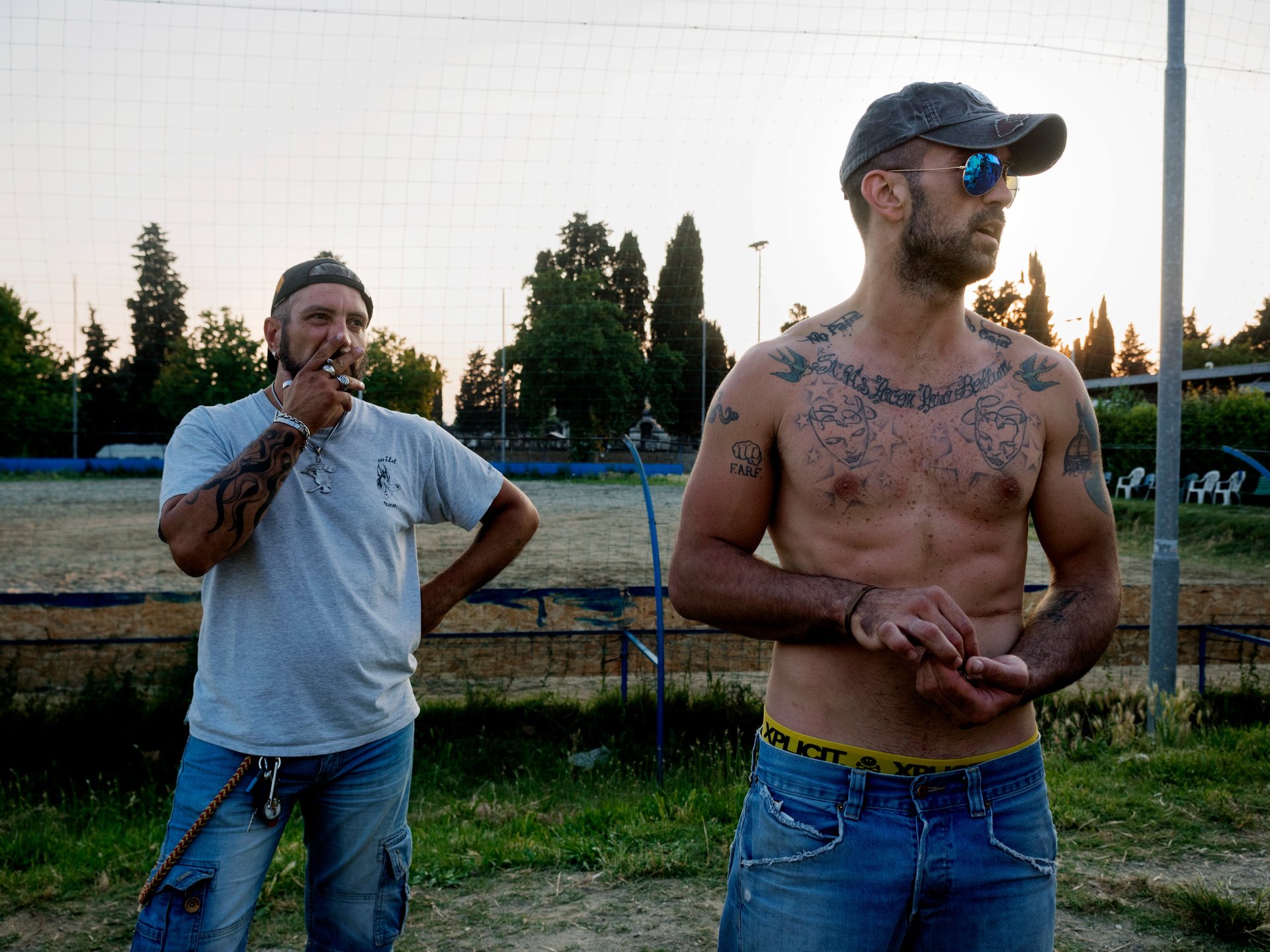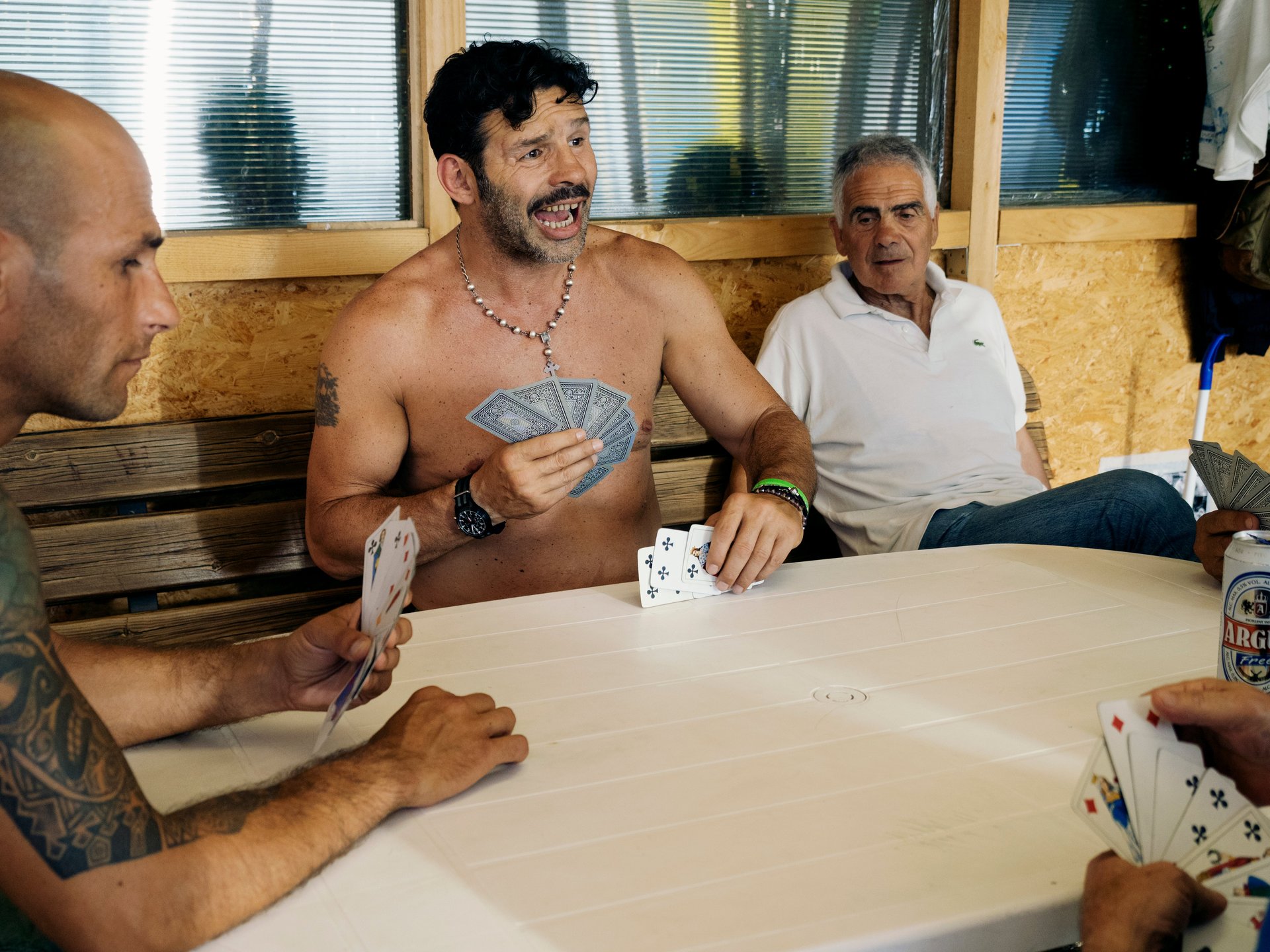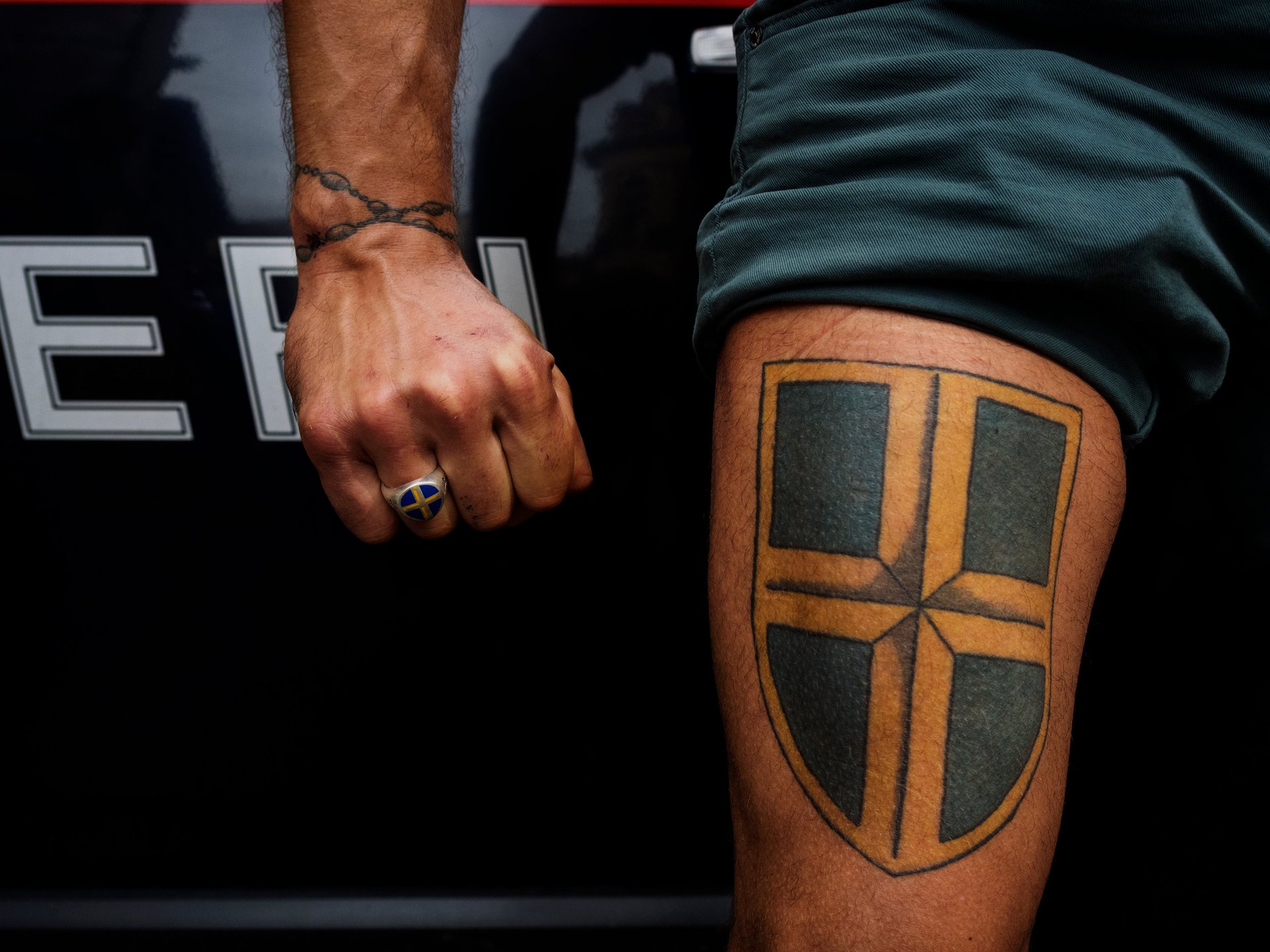The world’s most brutal game of soccer is played in 16th century costume
“The most important component of calcio storico is the fear,” said Alessio Giorgerini. “Those who say they don’t feel fear are telling lies.”
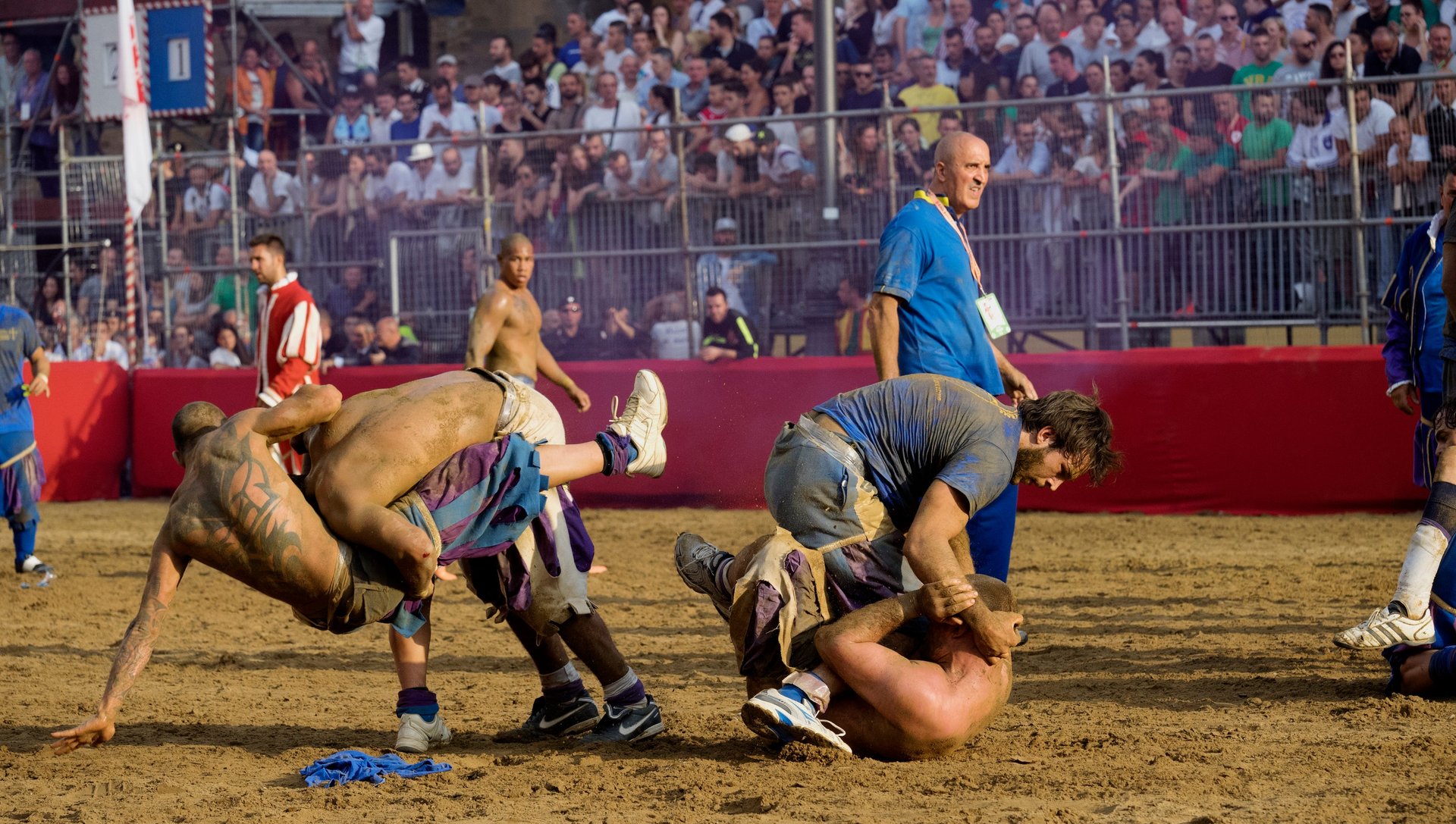

“The most important component of calcio storico is the fear,” said Alessio Giorgerini. “Those who say they don’t feel fear are telling lies.”
Dating back to 16th century Italy, today’s calcio storico, or historic soccer, may be both the most violent form of soccer in the world. It is played only in Florence, Italy, where four 27-man teams representing four historic Florentine neighborhoods—Santa Croce, Santa Maria Novella, Santo Spirito, and San Giovanni—face off to beat each other to a pulp, every June.
Kicks to the head are forbidden. So are fights of two or more against one. Everything else goes, making the ostensible goal of moving a leather ball from one end of the field to another seem like a side note to the bloody proceedings.
Giorgerini, 38, plays for Santa Croce’s Azzurri (Blues). His team’s uniform is a pair of blue and purple striped bloomers, per calcio storico tradition. With 54 similarly-costumed men punching, kicking and tackling across a vast and dusty field, each 50-minute match looks like a battle of clowns.
But for the violence they inflict and endure, and the game’s status as a symbol of Florentine culture, calcio storico players are revered as representatives of their communities.
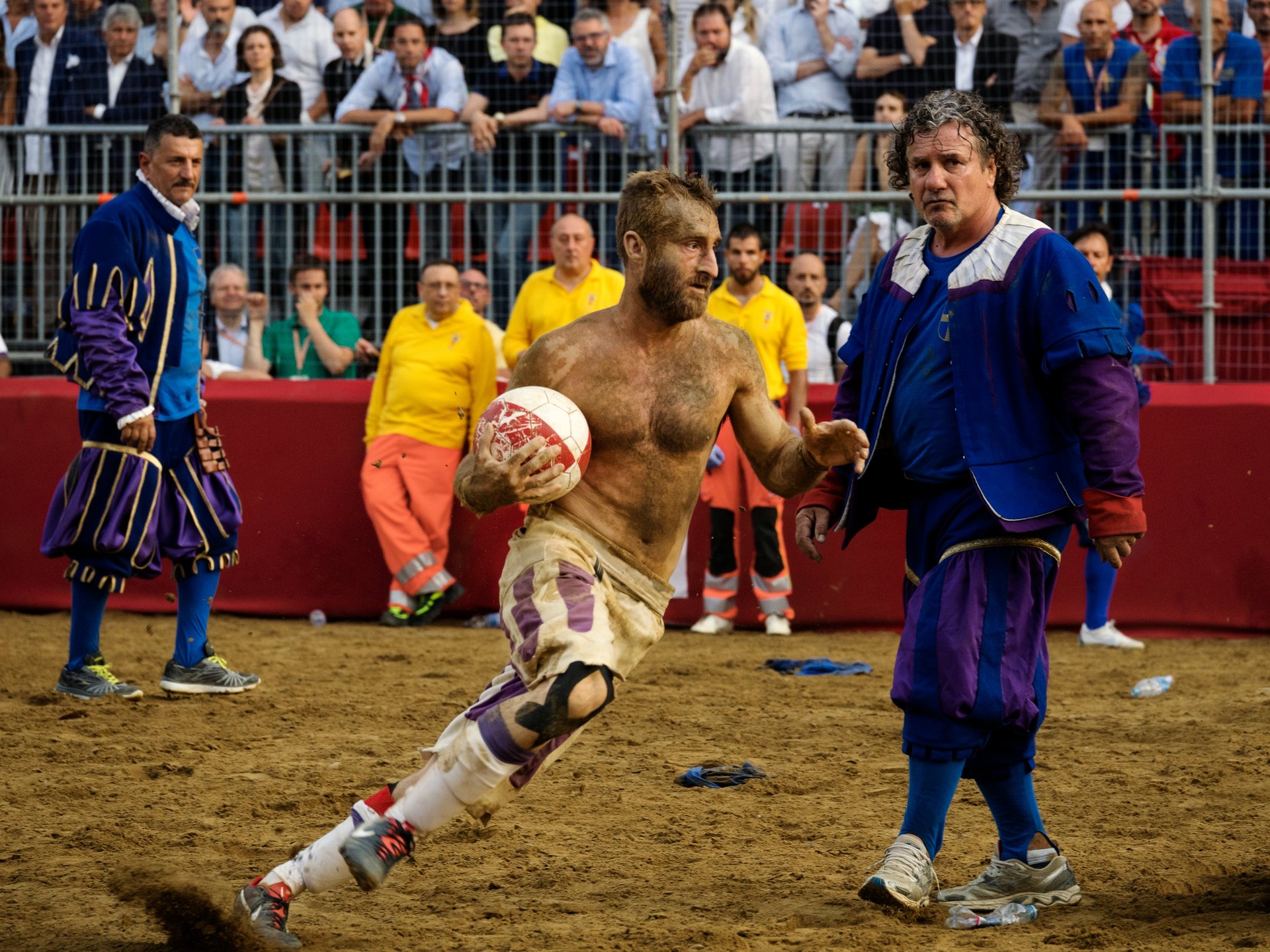
“For me it’s the most awaited event of the year, more than Christmas,” Azzurri keeper Jacobo Bastiani, 30, tells Quartz. “It’s Florentinian 100%.”
Traditionally, the team that emerged victorious would receive a butchered Chianina cow, an ancient local breed. Today, a post-game feast is offered to the winning team instead.
This year, it was the Santi Spirito Bianchi (Whites) who won, after defeating San Giovanni’s Verdi (Greens) on June 24th. The Azzurri, despite training all winter, had been beaten out in the semi-final.
“I’m going to start over and will leave everything to faith,” says Bastiani, hopeful for next year.
Bastiani has played for the Azzurri since 2008, and happily recalls one match when a member of his team had to be intubated after “a violent crash” with another player:
“Apparently he had several contusions and one of them hit his torso and that made him unable to breath for a few good moments. It’s all good now. So you see, it’s not that violent!”
Decorum is an important part of what makes a true calcio storico player, according to Mirko Galli, 23, who plays on the frontline of the Azzurri team. “A great player should be first of all a leader, a father, a role model,” he tells Quartz.
But other players keep their real families away from the field. Says Simone Mafara, a veteran of the field who joined the Azzurri in 1985:
“My mother has never come to the square, nor my wife, daughter or father. If I knew that my mother was suffering in the stands, watching her son getting wounded, and wounding other opponents, it would kill me,” he said.
“When you step on the field you’re somebody else, you’re not in yourself,” concedes Galli. “The fact that calcio has such a long story and tradition, along with Florence history, makes me feel invincible!”
Then he adds: ”In real life, I’m quite a caring person.”
